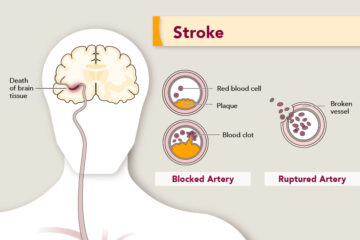Marathon training is a journey that goes beyond just running miles. Proper preparation, mindset, and care for your body are key to achieving both performance and longevity. As a healthcare provider in sports and movement medicine, I understand the importance of sustainable training practices. Here are ten essential steps to guide you through a healthy, effective marathon preparation process:
1. Warm Up and Cool Down
Before you hit the ground running, make sure you’re warmed up! A proper dynamic warm-up activates your muscles, primes your joints, and prepares your body for the demands of running. Post-run, cooling down with static stretches is essential for relieving muscle tension and preventing soreness. Incorporating foam rolling or gentle yoga can also enhance recovery.
2. Listen to Your Body
Training should challenge you, but it should never push you to the point of pain or extreme fatigue. Tuning into your body’s signals—whether it’s tightness, discomfort, or outright pain—can prevent injuries and setbacks. Remember, rest days are part of the process. Consistent progress comes from balancing effort with recovery.
3. Hydration Matters
Hydration is one of the simplest yet most overlooked aspects of marathon training. Staying hydrated supports muscle function, regulates body temperature, and aids recovery. Plan to hydrate consistently with water and electrolyte-rich drinks, especially on long runs and warmer days.
4. Footwear and Terrain
Marathon training means miles on your feet, so investing in high-quality running shoes is essential. Aim for a pair that aligns with your gait, arch, and the surface you’ll be running on. Don’t forget to replace your shoes every 300-500 miles to maintain support and cushioning.
5. Cross-Training
Running is a repetitive motion, which can place strain on specific muscle groups and joints. Cross-training introduces new movements that enhance overall fitness, reduce injury risk, and help you build strength. Activities like cycling, swimming, or strength training can improve your endurance without the impact of constant running.
6. Set Realistic Goals
When starting marathon training, set goals that align with your current fitness level. Start small and build up gradually to avoid burnout. Realistic goals not only protect you from overexertion but also boost motivation as you reach new milestones, whether it’s distance, speed, or endurance.
7. Recovery Time
Rest days are crucial, giving your body the chance to repair and grow stronger. Active recovery, like light walking or stretching, can keep your body moving while helping muscles recover. Schedule rest days with the same commitment as your training runs.
8. Nutrition
Nutrition plays a powerful role in how you perform and recover. Carbohydrates fuel your energy, protein aids muscle recovery, and healthy fats support endurance. During longer runs, consider bringing energy gels or bars to maintain stamina and avoid energy crashes.
9. Stay Connected
Joining a running community, whether in person or online, can keep you motivated and accountable. Sharing your progress with like-minded individuals provides encouragement, while also offering a network of tips, experiences, and camaraderie. Connecting with other runners can make your marathon journey even more rewarding.
10. Professional Consultations
Lastly, consult with professionals when needed. A sports doctor or physiotherapist can provide insight into your body’s unique needs, correct any imbalances, and help prevent injury. Their expertise ensures that you’re running safely and training effectively for your individual goals.
11. Mental Preparation
Running a marathon is as much a mental challenge as it is a physical one. Building mental endurance through visualization, goal-setting, and mindfulness exercises can prepare you for the psychological demands of race day. Practice positive self-talk and set small mental goals to keep your focus sharp during training and on the big day.
12. Sleep and Recovery
Sleep is the body’s time to repair, recover, and build muscle. Aim for 7-9 hours of quality sleep per night, especially as you increase training intensity. Developing a pre-sleep routine, avoiding caffeine, and staying consistent with your bedtime can enhance sleep quality and, in turn, your performance.
13. Injury Prevention Techniques
Beyond listening to your body, there are proactive techniques to minimize the risk of injury, such as foam rolling, dynamic stretching, and regular flexibility exercises. Additionally, consult a physiotherapist or sports medicine specialist if you experience persistent soreness or strain.
14. Fueling During Long Runs
For runs over an hour, refuel with easily digestible carbs to maintain energy and avoid hitting “the wall.” Practice using energy gels, chews, or sports drinks during training to determine what works best for your body. This helps avoid digestive surprises on race day.
15. Weather Preparedness
Weather can be unpredictable on race day, so practice in various conditions. Dress in layers for cold weather and prioritize light, moisture-wicking clothing for warm days. On hot days, stay especially mindful of hydration and electrolyte balance to prevent dehydration.
16. Post-Race Recovery
Recovery doesn’t stop at the finish line! Focus on rest, hydration, and gentle movement (like walking or light stretching) in the days following the race. Consider using recovery tools like ice baths, compression garments, and massage therapy to help reduce soreness and speed up recovery.
17. Tracking Your Progress
Using a fitness app or journal to track your progress helps keep you accountable and motivated. Document your weekly mileage, pace, and how you feel after each run to spot patterns and identify areas for improvement.
18. Celebrate Your Milestones
Training for a marathon is a journey that deserves recognition! Celebrate the milestones you hit along the way—whether it’s a new distance, improved pace, or personal best. Each achievement brings you closer to your marathon goal, so take time to acknowledge your progress.
Embrace the Journey and Enjoy the Run!
Preparing for a marathon is as much about the journey as it is about the finish line. These ten steps will not only prepare you for race day but also keep you healthy and engaged throughout your training. So, lace up, set your goals, and remember—the journey to marathon success is one step at a time!
For more tips, insights, and personalized advice on training and injury prevention, reach out! Let’s connect to support your journey to peak performance and lifelong wellness.



0 Comments